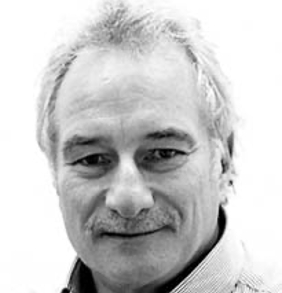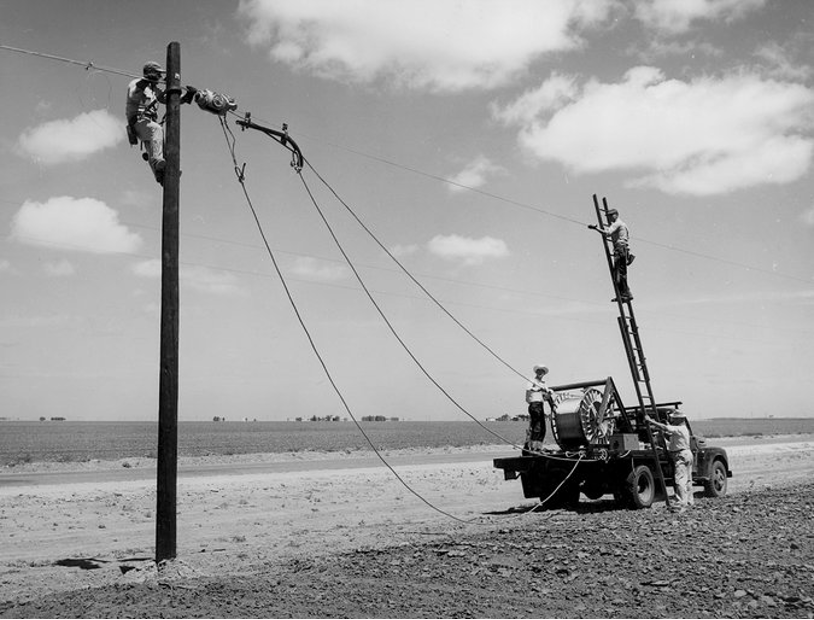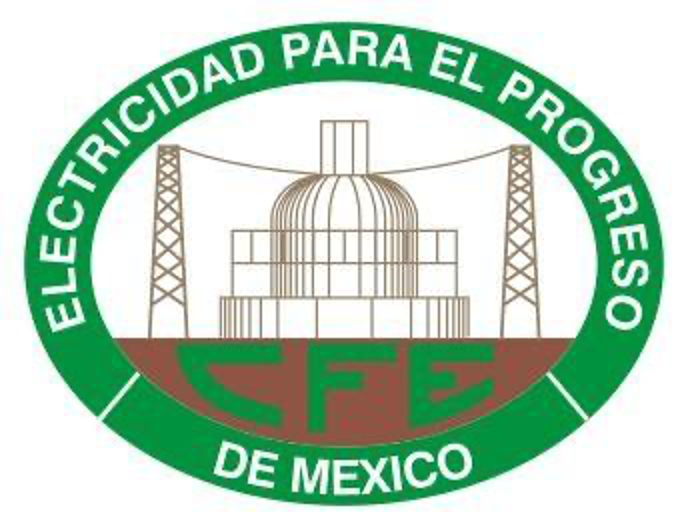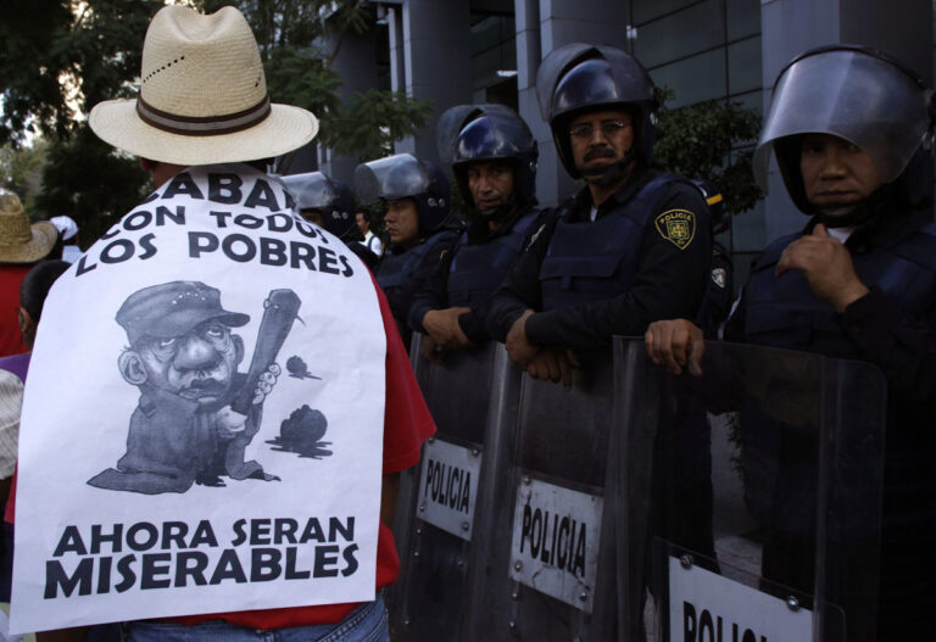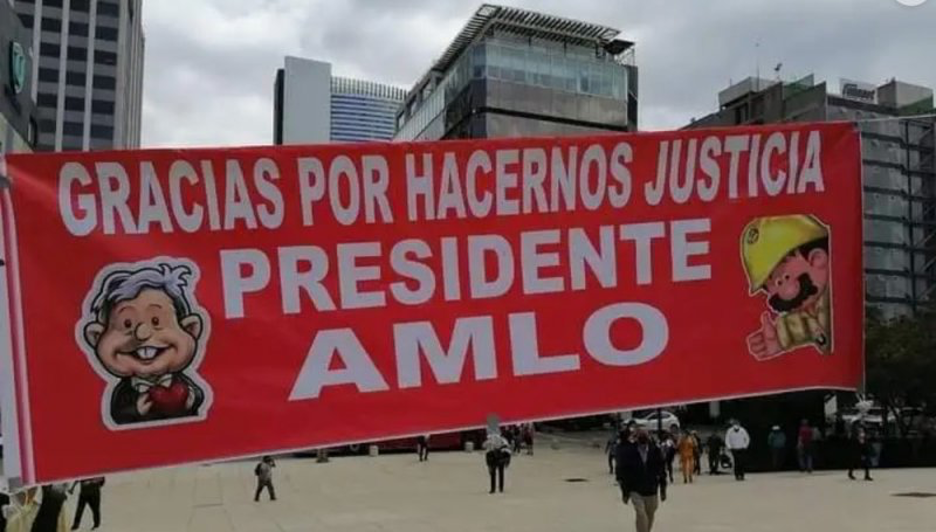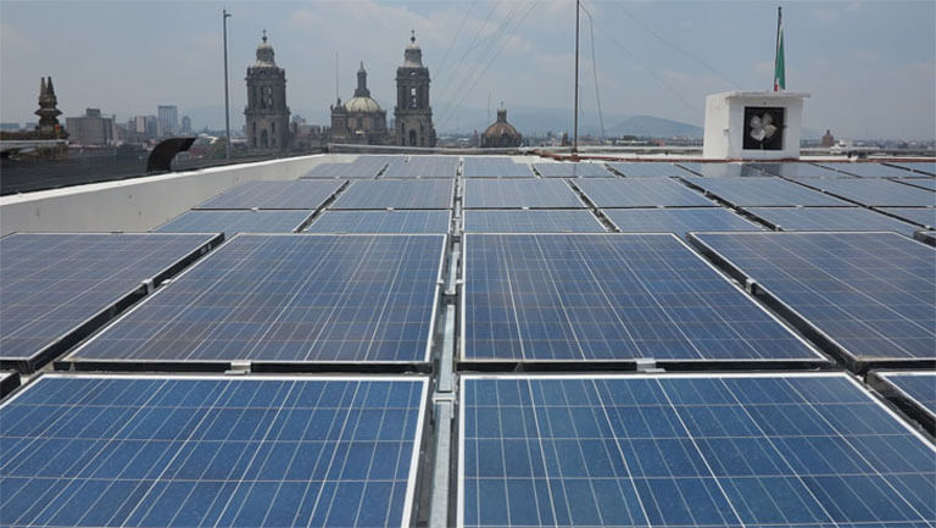|
|
The weekly newsletter of the Mexico Solidarity Project |
|
Every issue archived online at mexicosolidarityproject.org |
|
November 06, 2024 |
|
|
|
Energy: An Electrifying Solution |
|
Meizhu Lui, for the editorial team |
|
|
Whether you live in the world’s most developed country or in the least developed, your government has an energy problem. Look around your house. How many things do you use every week, every day, all the time that require electricity? How many more things than five years ago, twenty years ago? Freezers, Wi-Fi routers, hearing aids, cars — our lives are totally electrified.
Poor countries? In Zimbabwe, the rural woman I stayed with had no running water and cooked over a fire. No electrical outlets in her home — but she walked two miles to town once a week to use a community laptop.
Governments know their economies require all residents to plug in. How can they get everyone wired, even in remote areas? And how can they generate power in ways that don’t add carbon to the atmosphere?
Trade Unions for Energy Democracy (TUED) has been grappling with these global issues since 2013, as we hear in today’s interview. Working people and their unions have high stakes in these questions. Due to how humans affect the climate, our homes are at risk as more and more frequent and more and more severe hurricanes, fires and floods strike them. Blackouts over large swaths of territory happen all too often. Workers’ jobs are increasingly on the line, whether they’re energy sector workers or whether — like autoworkers — the products they make are being replaced by electric ones. It’s hard to balance our budgets when market fluctuations make our electric and gas bills unpredictable.
But there’s light at the end of the tunnel. When TUED looks at Mexico, they see a nation that has a bright idea: public ownership and control of the energy sector. Privatization has made the problems worse. But by nationalizing the production, transmission, and generation of electricity, Mexico is lighting the way to a clean energy future. |
|
Breaking news: Claudia Sheinbaum was just awarded the Nobel Sustainability Trust medal on October 31 -- her second Nobel. The Nobel letter states: "Your groundbreaking policies and innovative approaches have significantly contributed to environmental conservation, the adoption of renewable energy, and sustainable urban development. The positive impact of your work ... serves as an inspiration worldwide." Claudia responded, "For me, what is most important is to serve the people beyond titles or awards." |
|
For a deeper dive into current news and analysis in English, check out our media website. And definitely see the new English podcast ¡Soberanía! (Sovereignty) with José Luis Granados Ceja and Kurt Hackbarth. They entertain, while dismantling the lies and distortions about Mexico fed to us by the mainstream media. |
|
Don’t miss an issue! Sign up for a free Mexico Solidarity Bulletin subscription. |
|
|
Electric Power Must Be Powered by Workers |
|
|
|
|
|
|
|
Lala Peñaranda is a Colombian feminist eco-socialist based in Bogotá. She’s the Latin American coordinator for Trade Unions for Energy Democracy (TUED) and a member of the International Committee of Democratic Socialists of America. |
|
Sean Sweeney coordinates TUED, a global network of 120 unions from 48 countries that’s developing an independent trade union approach to energy sovereignty and climate protection. |
|
What do you mean by “energy democracy?” Why is it important?
Democracy means the power of the people. We believe that workers, consumers and the people of countries that have the raw materials for producing energy should set and benefit from energy policy. That means that the public must own and control energy resources. Without that, it’s impossible to plan for future needs, given the short-term and haphazard nature of markets.
Another term might be “energy sovereignty.” When we speak of nations, especially in the global south, they often have the natural resources, such as lithium, oil and gas, but these are exported for energy production and use in wealthier countries.
|
|
|
Roosevelt's Rural Electrification Program, 1930s |
|
Was there ever public control? Historically, electrification has often been a state project. For any kind of economic development, electricity has been essential. When the Russian Revolution succeeded in 1917, Lenin said that socialism meant “electrification plus soviets (local elected governments)”! In the US, electrification began at the turn of the last century, and public companies did the work. |
|
But in the 1980s, the new neoliberal economic model changed the energy landscape, transferring public ownership to private. And beginning in 1993, the World Bank stopped lending to governments for public energy projects. Half the world’s countries were targets of the IMF and World Bank’s “structural adjustment programs,” which amounted to a full-on privatization agenda. Electrification projects for the poor slowed down, notably in Africa. Investors saw no profit in bringing energy into underdeveloped areas that were isolated, in difficult terrain and had few potential customers.
In terms of climate concerns, when private profit is the driver, it’s impossible for a country to wean itself from a diet of fossil fuels and meet the modest goals of the Paris Agreement.
Neoliberal reforms included new governmental “oversight” bodies. In Mexico, the Energy Regulatory Commission (CRE) was set up in the 1990s. What have been the results?
|
|
The CRE, a commission independent of the Mexican government, was created to oversee the implementation of neoliberal reforms. When, for example, the Federal Electricity Commission (CFE) sought to impede the private generation of electricity, the CRE stopped it.
The IMF and World Bank’s “standard model” of reform called for the three functions managed by the CFE to be broken up. |
|
|
CFE, the public energy company, “Electricity for Mexico’s progress” |
|
The generation, transmission, and distribution of energy were “unbundled” in order to open the door to private investment, mostly from foreign multinationals. In Mexico, power production was contracted to private independent power producers (IPPs). They could not lose under the “take or pay” contracts the government signed: If the level of energy agreed to wasn’t needed or not usable for other reasons, the government still had to pay. The public dollars paid to the IPPs left no funds to maintain the grids — the transmission and distribution functions. All the risk fell on the government.
How did this affect workers?
In 1903, the public energy company Luz y Fuerza (Light and Power) was created, and its mission was to provide electricity to the nation. However, during the neoliberal policies of the 1980s, it was forced to compete with private entities not operating under the same mandate to provide universal power. “Competition” was a fiction.
Due to financial losses and the World Bank’s demand that companies, whether public or private, must recover all of their costs of production to ensure their loans would be repaid, Luz y Fuerza was dissolved by the neoliberal Calderón government in 2009. |
|
|
SME protest, 2009: Finish off the poor, now they’ll be miserable.” Esquivel/Cuartoscuro. |
|
The workers belonged to the Mexican Electrical Workers’ Union (SME), which was founded in 1914 in the midst of the successful Mexican Revolution. Calderón literally attacked the SME. |
|
He sent 30,000 troops to storm the union hall, and 40,000 public electrical workers were summarily dismissed. Some decided to strike; 15 years later, 14,000 SME workers are still on strike today. This complete privatization had a major effect on the entire country — service provision went down, prices went up, and workers lost.
Under President Peña-Nieto, elected in 2012, power purchase agreements (PPAs) — also “take or pay” contracts — with foreign clean energy companies were supposed to bring about a green revolution. But brownouts and blackouts increased because of the deregulation and disintegration of the public grid. |
|
|
Electrical workers thank AMLO, 2022 |
|
Unions want energy democracy for a reason — electrical workers |
|
So, what about clean energy? AMLO built a new oil refinery. Doesn’t this show a long-term commitment to fossil fuels?
Building a new refinery was a good decision because, although Mexico is an oil producer, it exports raw crude to refineries abroad and imports it back as refined petroleum products. New refinery capacity does not add to emissions overall, but it does help Mexico get full value from its oil resources. Similarly, Mexico’s electricity system is currently dependent on shale gas (from fracking) imported from the US. Breaking that dependency is important, and public renewables can help with that.
We therefore reject simplistic slogans like “keep oil in the soil” and “coal in the hole.” Countries of the global south, which after all aren’t responsible for most carbon emissions, need to make a transition that doesn’t destroy their economies or make them dependent on foreign technologies and fuels. Energy sovereignty is a first principle. |
|
Labor leaders in the energy sector, such as SME’s Foreign Affairs secretary, José Humberto Montes de Oca Luna, support the transition to clean energy and are hopeful that President Sheinbaum, an environmental scientist, will lead the way. |
|
|
Mexico City mayor Sheinbaum installed the world's largest urban solar array. |
|
You’re planning an international conference for February 2025. What do you hope to accomplish?
Last week, Mexico passed a constitutional reform that returns the energy sector to public control — where it was in the original 1917 constitution. The CRE will soon be gone. This is a turning point and a huge victory — not just for Mexico but as a model for other countries of the world.
Unions from 25 countries have so far registered to join the TUED conference. While our goal is a global transition to clean energy, our focus will be on sovereignty — a prerequisite to progress. We will explore working-class approaches to the climate crisis, understanding that public pathways are critical to decarbonization. The conference will be held in Mexico City.
It’s a fitting place to hold the conference! |
|
|
|
|
Whoever Wins, Mexico Loses |
|
|
Mexico City-based freelance writer and photojournalist José Luis Granados Ceja writes for Venezuelanalysis and co-hosts the Mexico Solidarity Project's weekly podcast, Soberanía. He can be followed on X (Twitter): @GranadosCeja |
|
|
By the time you read this, you might know who the next president of the United States will be. But when it comes to US security policy abroad, it won’t matter who wins; Mexico will lose.
Donald Trump, the Republican candidate, threatens to take a hard-line position on Mexico’s organized crime groups by designating them as “Foreign Terrorist Organizations,” as in the 1996 Antiterrorism and Effective Death Penalty Act. Trump intended to implement the Act in his first term but gave it up in the face of Mexico’s shrewd negotiating. Analysts warn that Trump will be bolder in a second term.
This FTO designation could trigger a US unilateral military action inside Mexico against so-called drug cartels, including drone strikes or even covert “kill teams” sent to Mexico to assassinate kingpins, all without Mexico’s approval. While grossly violating Mexico’s sovereignty, this strategy does nothing for people and their families wrestling with addictions inside the US and very little to stem illicit drug supply. And when, during the neoliberal era, the “kingpin” strategy prioritized capturing cartel leadership, it only served to splinter cartels and increase the violence as rivals fought to establish new leadership and secure control over territory and drug routes.
Kamala Harris, the Democratic Party candidate, seems hardly any better for Mexico. The Biden-Harris administration has been at odds with Mexico City over their refusal to continue US agents’ free rein inside Mexico. Under López Obrador, Mexico severely limited the DEA’s scope of work, grounding their planes and imposing restrictions and greater scrutiny of agents. The DEA’s director, Anne Milgram, even lamented the slow pace of visa approval. President Claudia Sheinbaum continues this strategy, pledging cooperation without submission.
Democrats have the same disdain for Mexican sovereignty as their Republican counterparts. Three months ago, notorious drug kingpin Ismael "El Mayo" Zambada was mysteriously whisked away to the US and arrested at a Texas private airfield in what Alejandro Gertz Manero, Mexico’s Attorney General, described as a kidnapping. Though it’s believed Zambada was betrayed by Joaquín Guzmán López, son of Zambada’s one-time partner El Chapo, the US hasn’t yet fully explained how the operation went down or the US government’s role.
“The United States has provided us with part of the information, but an essential part is still missing,” said Manero. US Ambassador Ken Salazar responded condescendingly to Mexico’s push for more transparency, saying, “What happened in Sinaloa should be celebrated.”
That’s easy for Ken to say, but Mexico and Mexicans are now enduring a violent fallout from that operation as rival factions of the Sinaloa cartel fight it out. Mexican Defense Secretary Ricardo Trevilla directly attributed the State of Sinaloa’s rise in violence to Zambada’s arrest.
Though López Obrador had abandoned the “kingpin” strategy favored by the US, apparently Washington is dead set on continuing it, whether Mexico approves or not. The US gets flashy headlines, and Mexico gets bodies piling up.
Mexico yearns for peace, but that requires a coordinated, multifaceted strategy, not US unilateral actions, be it a Republican or Democrat in the White House. |
|
|
|
|
Recent news reports and commentaries, from progressive and mainstream media, |
|
Ximena González, Public Infrastructure Is AMLO’s Legacy Jacobin. Public spaces are the cornerstone of AMLO’s legacy in Mexican urban policy. His administration’s support for socially oriented infrastructure and architecture continues to reshape the landscape and the lives of those in overlooked areas.
Fabiola Martinez, Aunque no guste, proceden comicios, indica Felipe de la Mata, del TEPJF La Jornada. Felipe de la Mata, magistrado de la sala superior del Tribunal Electoral del Poder Judicial de la Federación (TEPJF), señaló que ningún juez puede aplicar su criterio personal por encima de lo que establece la Constitución y, en ese sentido, si aquella prevé la elección de juzgadores, la instrucción debe acatarse.
After another constitutional reform, what’s next for Mexico’s judicial system? Mexico News Daily. The Morena party leader Ricardo Monreal claimed that the “constitutional supremacy” reform is the “most profound” reform “in the 200 years of the life of the country.”
Gerardo Hernández, 8 millones de personas son informales, pero trabajan en el gobierno y en empresas El Economista. En términos generales, el trabajo informal “es una parte de la economía que no se ha beneficiado directamente de los aumentos al salario mínimo o las mejoras en la política laboral. Por ello, la informalidad laboral reproduce y profundiza desigualdades territoriales, de género, de ingresos y de acceso a derechos”, destaca el reporte.
Reynaldo Vizcarra-Mendez, Jonathan Edward Adams and Milka Samantha López-Tapia, Mexico: Incorporation of the Secretary of Anti-corruption and Good Governance, replacing the Secretary of Public Administration Global Compliance. This new model proposes moving from a corrective approach to a preventive one, combating corruption from the root.
Alfonso López Dávila, Emilio Azcárraga heredó Televisa entre dudas, hoy vuelven con el Fifa Gate Sin Embargo. Emilio Azcárraga Jean, presidente de Grupo Televisa, uno de los consorcios televisivos más importantes no solo de México, sino de América Latina, ha acaparado las portadas de medios nacionales como del extranjero luego de que pidiera licencia a la presidencia para atender una demanda de corrupción ante la justicia estadounidense.
Steve Greenhouse, ‘Zombie-like’: the US trade agreement that still haunts Democrats The Guardian. Missing in this very US-centric piece is the devastation caused to Mexicans by NAFTA, primarily through the destruction of the agriculture sector and associated impoverishment of farmers by dumping US corn into the market, but also by granting significant privileges and powers to US capital to override the interests of Mexicans.
David Shepardson, Mexico warns US ban on Chinese car tech could hurt automotive industry Reuters. Once again, the US tries to make its problems with China, Mexico’s problems.
México expresa preocupación por plan de EU de prohibir software y hardware chinos para vehículos El Economista. Una vez más, Estados Unidos intenta convertir sus problemas con China en los problemas de México. |
|
|
|
|
The Mexico Solidarity Project brings together activists from various socialist and left organizations and individuals committed to worker and global justice. We see the 2018 election of Andrés Manuel López Obrador as president of Mexico as a watershed moment. AMLO and his progressive Morena party aim to end generations of corruption, impoverishment, and subservience to US interests. Our Project supports not just Morena, but all Mexicans struggling for basic rights, and opposes US efforts to undermine organizing and Mexico’s national sovereignty.
Editorial Board: Meizhu Lui, Bruce Hobson, Agatha Hinman, Victoria Hamlin, Courtney Childs and Pedro Gellert. To give feedback or get involved yourself, please email us! |
|
Subscribe! Get the Mexico Solidarity Bulletin in your email box every week. |
|
Web page and application support for the Mexico Solidarity Project from NOVA Web Development, a democratically run, worker-owned and operated cooperative focused on developing free software tools for progressive organizations. |




